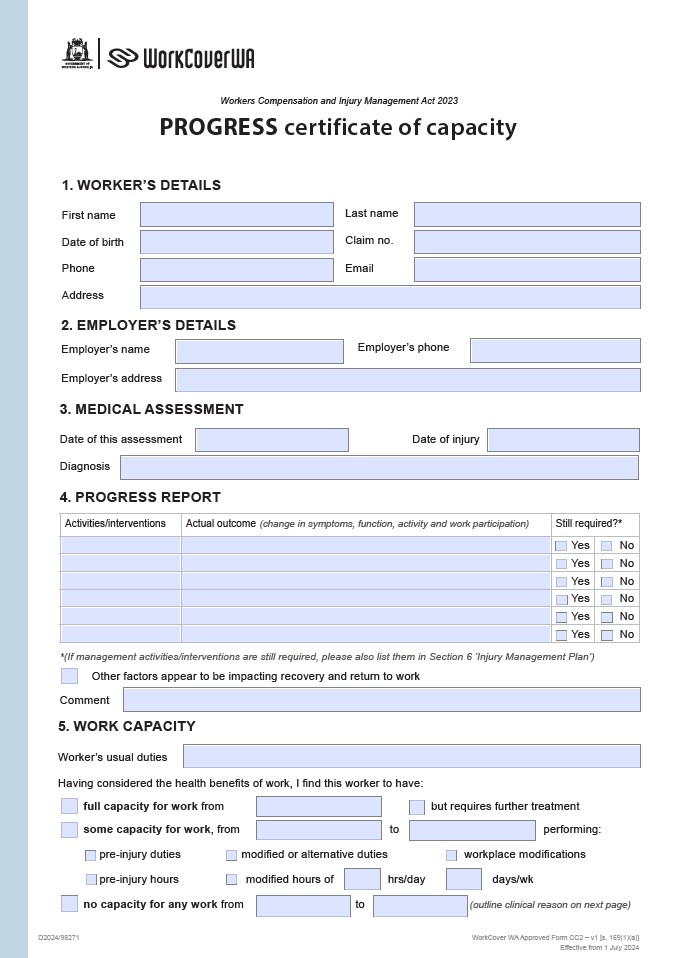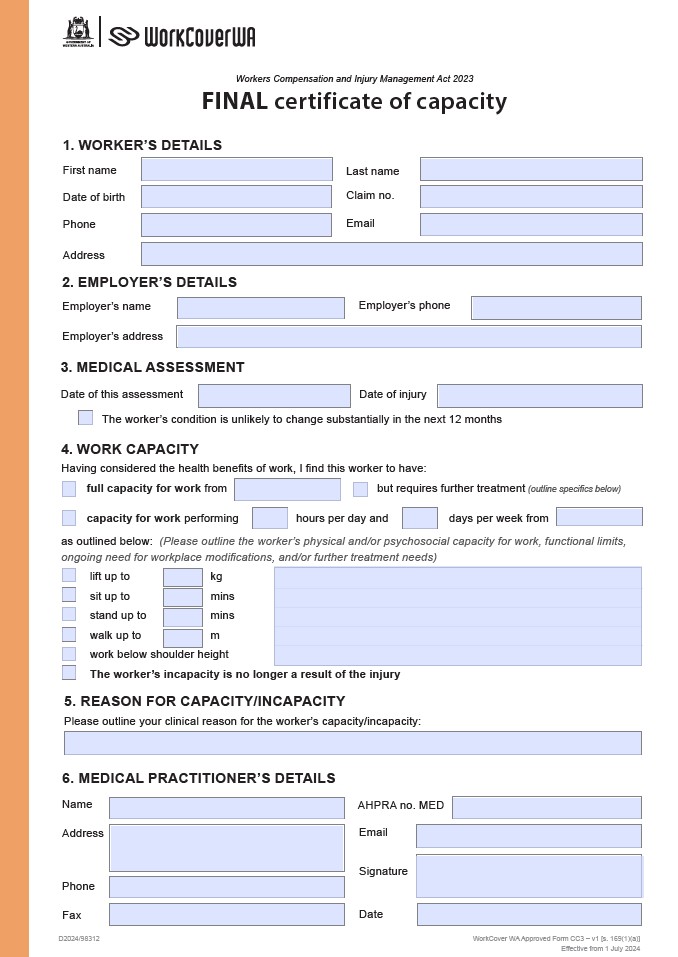
As an injured worker’s treating medical practitioner, you will have a vital role in managing their recovery and return to work. With the injured worker, you form the core of a larger team with a shared goal: timely and sustainable recovery and return to work.
Your role includes:
- Diagnosis, primary care and coordination of medical treatment
- Issuing certificates of capacity
- Monitoring, reviewing and advising on the worker’s condition and treatment
- Advising on the suitability of, and specifying restrictions on, duties the worker may be expected to perform
- Participating in the development of a return to work program and return to work case conferences.
This page provides general guidance and key resources you may need to perform your role. For a comprehensive guide, refer to Workers Compensation and Injury Management: A Guide for Treating Medical Practitioners.
Jump to:
- Your first meeting with an injured worker
- Your ongoing role
- Communicating with the employer
- Guide for Treating Medical Practitioners
- Further resources
- Information for practices
- Fees
- Contact us
- An injured worker has the right to choose their treating medical practitioner.
- Employers, insurers and their representatives are expressly prohibited by law from being present while a worker is being physically or clinically examined at medical appointments.
It is not the role of the treating medical practitioner to determine whether the worker has a valid claim. Medical opinion should be restricted to establishing whether the medical condition could have resulted from the incident reported by the worker and the consequential ability of the worker to perform their work duties.
As your role extends beyond initial assessment, diagnosis and primary treatment of the injury, you may continue to see an injured worker on an ongoing basis.
You will provide updates on capacity to the employer, insurer and other members of the treatment team through issuing certificates of capacity.
Your communication with the employer is of vital importance in the management of the injured worker’s recovery. Together, you can assist the injured worker to return to work in a timely manner and reduce the possibility of further aggravation or recurrence of the injury.
If you indicate that the worker has some capacity for work, the employer must implement a formal return to work program.
Your role in return to work may include:
- Assessing suitability of available duties in the workplace to assist with developing a return to work program.
- Reviewing a return to work program.
- Attending return to work conferences.
An injured worker consents to their treating medical practitioner discussing their medical condition with their employer, insurer and other medical and health professionals by signing the consent authority on their claim form or certificate of capacity. Consent is valid for the life of the claim.
Our publication Workers Compensation and Injury Management: A Guide for Treating Medical Practitioners has been designed to assist you in all aspects of your role.
- Download as PDF
- Prefer hardcopy? Order printed copies now
Clinical Framework
The Clinical Framework for the Delivery of Health Services is an evidence-based guide designed to support healthcare practitioners delivering services to people with compensable injuries.
For more information, see Clinical Framework
Work-related mental health conditions
The following resources are available to assist with the diagnosis and management of work-related mental health conditions:
Video – Certificate of Capacity: Guidance for treating medical practitioners
Resources for practices
Coming soon.
Order worker resources
As medical treatment is often the first point of call for an injured worker, we recommend having resources on hand at your practice. Our First Steps for Injured Workers poster and brochure have been designed for medical settings to convey key information about how to make a claim without overwhelming injured workers.
The Workers Compensation (Medical Services) Fees Order sets out the maximum amounts (excluding GST) that can be paid for each type of medical service.
For the Fees Order and more information, visit Rates, Fees and Payments.
Questions
If you can’t find what you’re looking for, our Advice and Assistance Service is here to help. Call 1300 794 744 from 8:30am to 4:30pm, Monday to Friday.
Feedback
What do you want to see on this page? Send your feedback to communications@workcover.wa.gov.au












